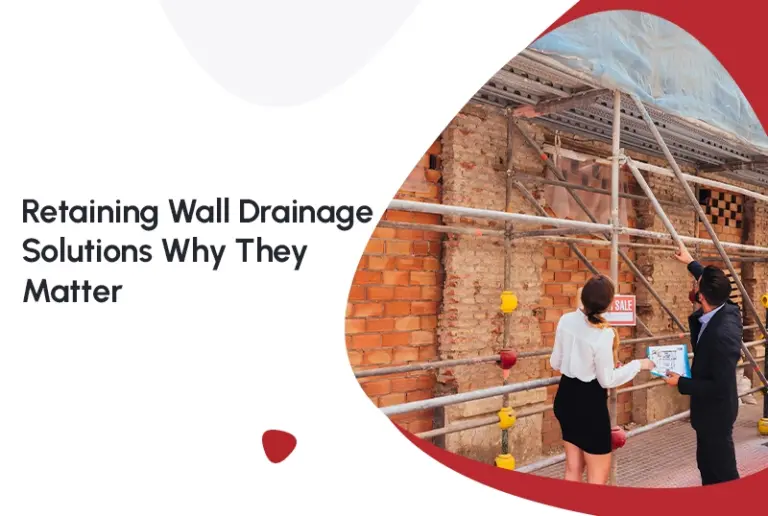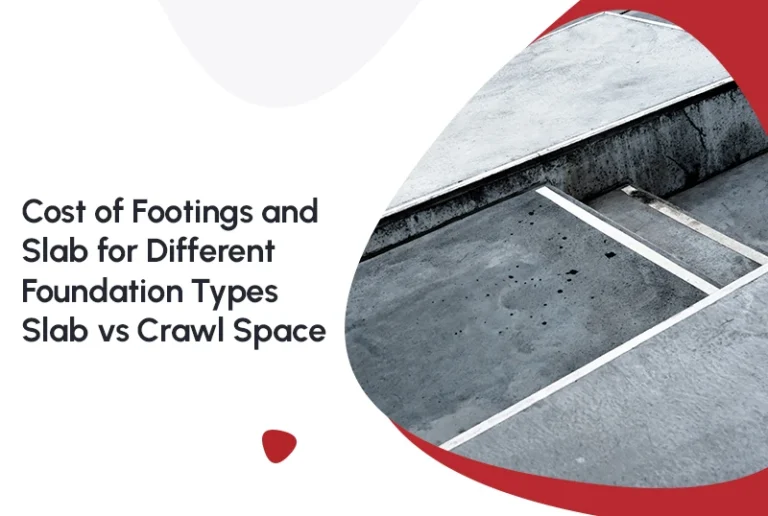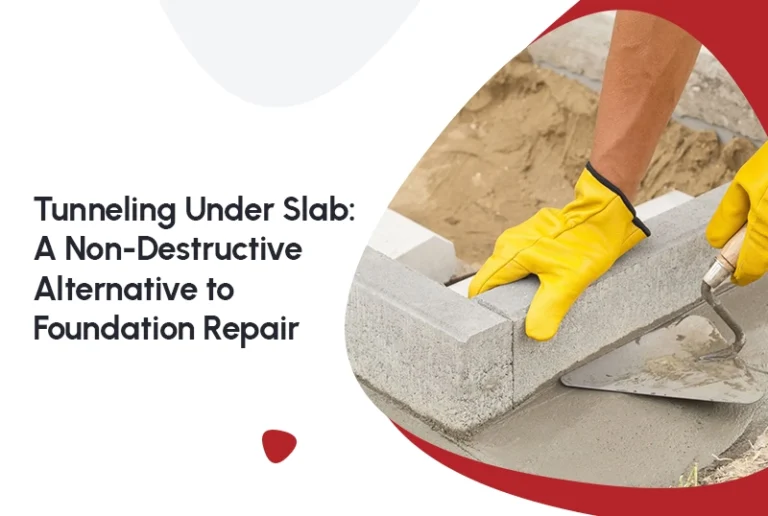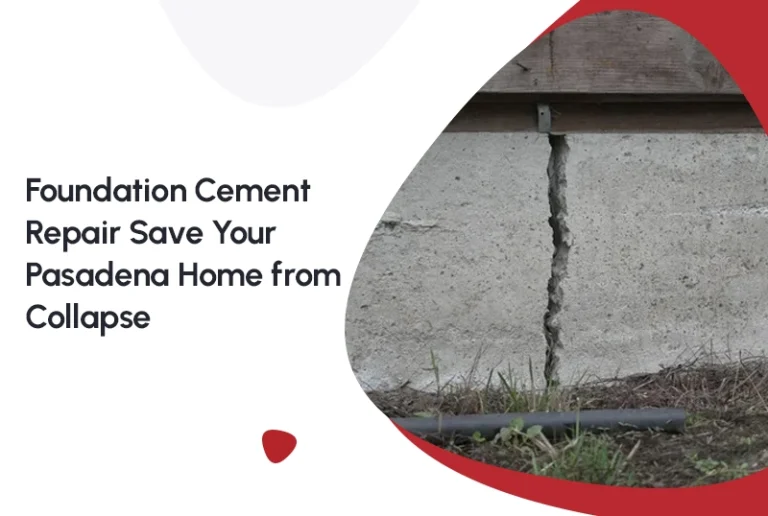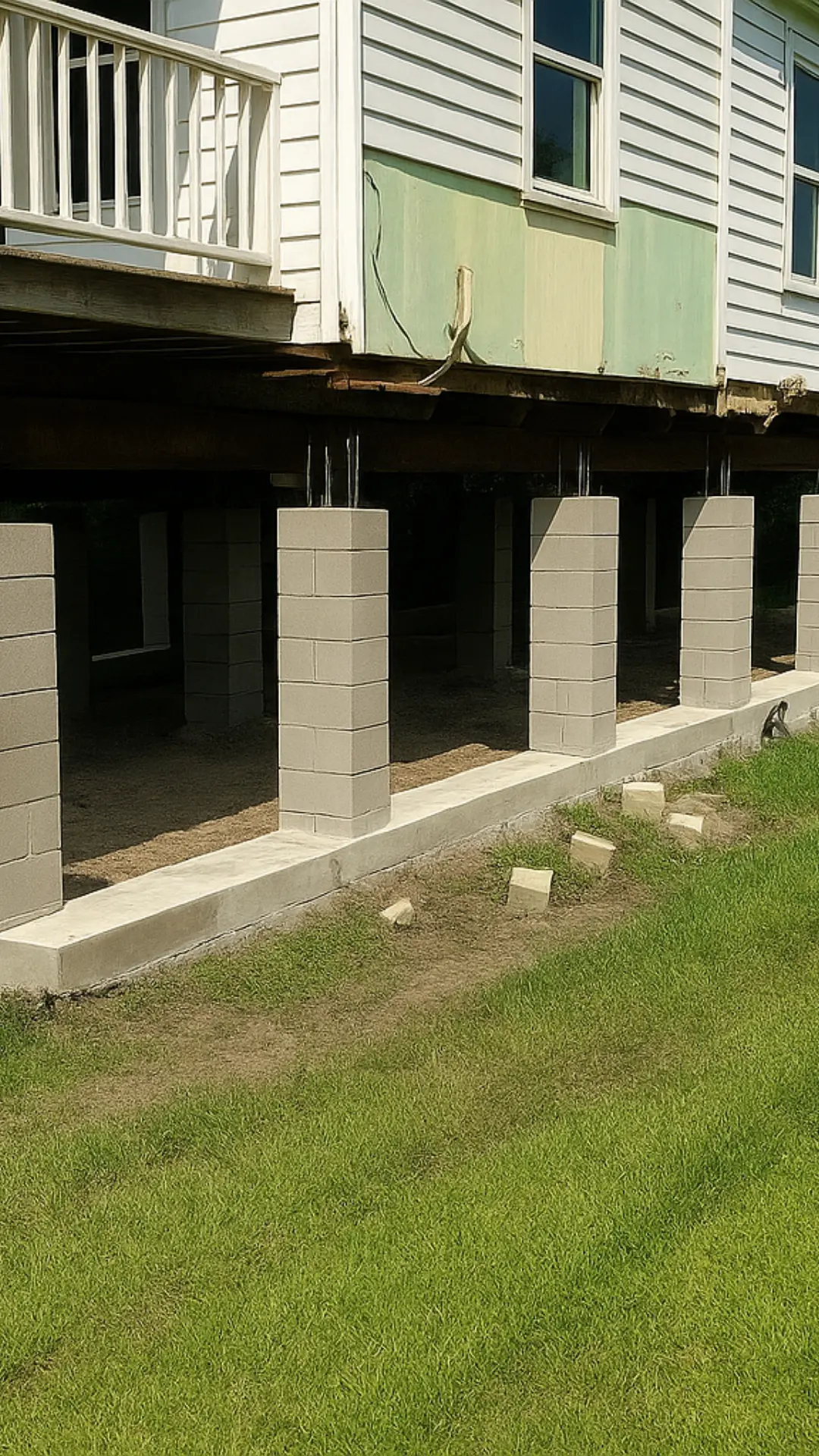Living in Houston, you know that the climate can be unpredictable, one day it’s sunny, the next, it’s raining cats and dogs. And for homes here, the constant shifts in moisture levels and temperatures can wreak havoc on your foundation. So, it’s no surprise that foundation work problems are one of the most common issues in Houston homes.
In this blog, we’ll dive into the best methods for foundation work in Houston’s unique climate. We’ll break down why it’s essential to address foundation problems early, explore the types of foundation repairs suited for the area, and give you expert insights to make the right decision for your home.
Want to learn more about Residential Foundation Repair? Click here.
Why Houston’s Climate Affects Foundation Work
Houston’s climate is often a perfect storm for foundation work problems. With its high humidity, periodic rainfall, and clay-rich soil, the foundation of your home is under constant pressure. Here’s why:
Expansive Clay Soil: The Silent Culprit
Clay soil, commonly found in Houston, behaves unpredictably under different moisture conditions. When clay becomes saturated with water, it expands, exerting immense pressure against your foundation. This causes the ground beneath your home to swell, which can push against the concrete or piers, leading to stress and potential cracking.
When the soil dries out—often during hot, dry spells—clay contracts, shrinking away from your foundation. This cycle of expansion and contraction can create gaps under the foundation, causing it to shift or settle unevenly over time. The uneven settling results in foundation work issues like cracks in your floors, walls, and even structural misalignment.
Expansive soils are estimated to affect 25% of all structures in the United States, causing more damage to residential foundations than earthquakes, floods, hurricanes and tornadoes combined.
Humidity and Water Damage: The Hidden Threat
Houston’s high humidity levels are another factor that affects foundation stability. Excess moisture in the air can contribute to soil erosion around the foundation, making the ground less stable and more prone to movement.
Additionally, Houston experiences regular rainfall. Without proper drainage, rainwater can pool around the base of your home, seeping into the soil. Over time, this added water pressure can exacerbate the already shifting soil, potentially leading to water infiltration into your basement or crawl space, causing significant damage to your foundation work . Water infiltration can also lead to mold and mildew growth, further weakening structural elements.
Temperature Fluctuations: Constant Stress on Soil
Houston’s temperatures can vary significantly, especially between seasons. The fluctuation in temperature combined with moisture levels further stresses the soil surrounding your foundation. During the summer months, the heat causes the soil to dry out and contract, while cooler months can see moisture returning and causing the soil to expand again. This constant cycle of drying and soaking weakens the ground under your foundation, making it more prone to shifting, settling, and cracking.
As a result, the foundation of your home experiences continuous stress, which can lead to long-term structural instability if not addressed promptly.
In U.S. cities, at least 20% of urban areas are experiencing land subsidence, and in cities like Houston over 40% of land is subsiding at rates exceeding 5 mm per year.
By understanding how Houston’s climate impacts your foundation work, you can take proactive steps to protect your home, such as improving drainage, addressing soil movement, and ensuring that your foundation is regularly inspected and maintained. These measures can save you from more expensive and complex foundation work repair later.
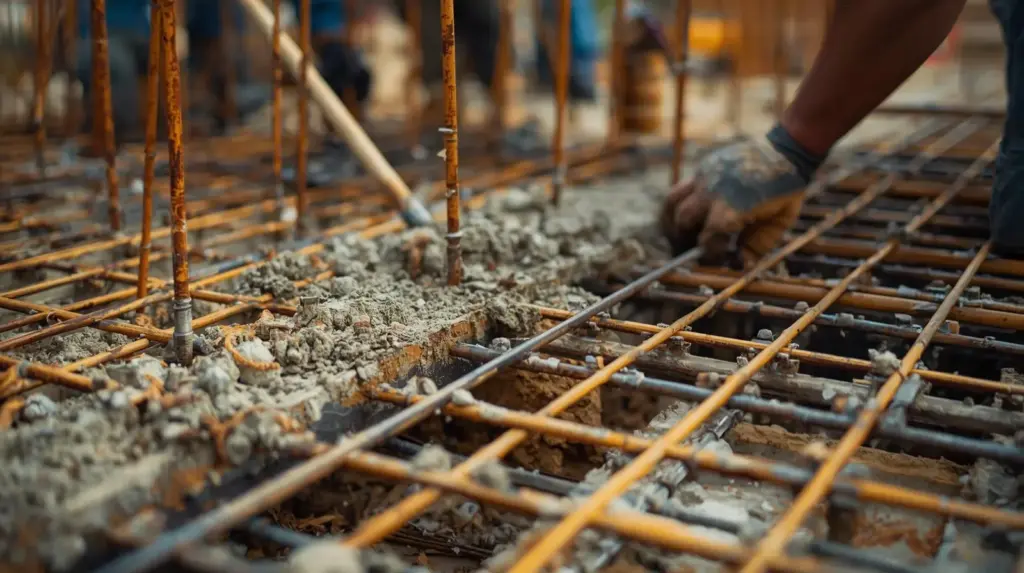
Best Foundation Work Methods for Houston Homes
The key to preventing or fixing foundation problems in Houston is knowing which foundation work method works best for the city’s unique climate. Below are the most commonly used methods, along with their pros and cons:
1. Slab Foundation Repair
Best For: Homes with concrete slab foundations that show signs of settling, cracking, or shifting.
Slab foundations are common in Houston, but over time, they can become uneven due to soil shifting. Concrete slab foundation repair Pearland involves stabilizing the foundation and lifting it back to level using hydraulic jacks or piers. Depending on the severity of the settlement, foundation repair Pearland services can help with precise slab lifting and stabilization.
Pros:
- Quick and effective
- Long-lasting results if done correctly
- Minimal disruption to your home
Cons:
- Expensive for severe damage
- May require extensive excavation in some cases
2. Pier and Beam Foundation Repair
Best For: Homes with crawlspaces and pier-and-beam foundations.
This type of foundation requires adjustments to the supports underneath your home. If your home is built on pier and beam, the soil may have shifted, causing the beams to become misaligned or weakened.
Pier and beam foundation repair involves adjusting or replacing the beams and piers under your home. In areas like Pearland, where soil movement can be particularly aggressive, this method helps realign the foundation and restore stability.
Pros:
- Easy access for repairs
- Can be more cost-effective than slab repairs
- Ideal for older homes or properties with crawl spaces
Cons:
- Can lead to ongoing issues if not done correctly
- Moisture control in the crawl space is essential to prevent further damage
3. Helical Pier Installation
Best For: Homes with severe foundation settlement or heavy structural loads.
Helical piers are a type of deep foundation that can be installed under homes with significant settlement. These steel piers are screwed deep into the ground until they reach stable soil, providing long-term support for your home.
Pros:
- Ideal for deep soil issues
- Minimal disruption during installation
- Provides permanent foundation stabilization
Cons:
- Higher installation costs
- May require heavy machinery
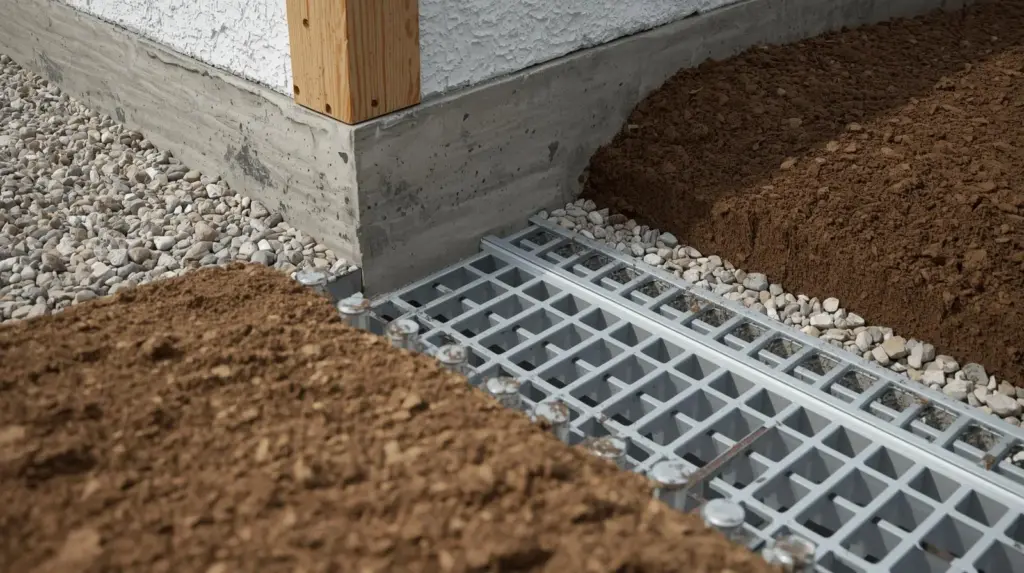
Drainage Solutions: The Foundation’s Best Friend
If you’ve ever struggled with a soggy yard or water pooling around your home’s foundation, you know how detrimental it can be to the overall structural integrity. Poor drainage is a leading cause of foundation damage, particularly in Houston’s rainy seasons.
One of the best solutions is installing a French drain, which redirects water away from the foundation, preventing it from pooling around your home and causing soil erosion or weakening the foundation.
You can also address house leveling service Pearland with proper drainage by correcting any low spots around your home’s perimeter to improve water flow.
Crawl Space Moisture Control
Homes with crawl spaces need moisture management. Installing a vapor barrier, improving ventilation, or adding a sump pump can help reduce the risks associated with excess humidity and water infiltration.
FEMA reports that more than 50% of homes in the U.S. are built on soils with moderate to high shrink-swell potential, making them highly susceptible to foundation movement and structural damage.
Foundation issues can cause significant financial strain if not addressed promptly, which is why it’s crucial to take action at the first sign of trouble.
When Should You Call a Foundation Repair Specialist?
Foundation issues aren’t always easy to spot. But if you notice any of the following signs, it’s time to call a professional for a consultation:
- Cracks in the walls, especially above doors and windows
- Gaps between floors and walls
- Uneven floors or sloping
- Sticking doors or windows
- Cracks in the exterior brickwork or mortar
- Musty odors or mold in the basement or crawl space
At FNF Foundation, our experts will assess the root cause of your foundation problems, whether it’s due to soil movement, poor drainage, or something else. From there, we’ll recommend the best foundation repair method for your situation.
Conclusion: Protect Your Home with the Right Foundation Repair
Foundation issues, especially in areas like Pearland, Spring, Humble, and beyond, are common and can quickly escalate into major structural problems. Whether you’re dealing with cracks, sloping floors, or drainage issues, early detection and the right foundation work are key to preserving your home’s integrity.
By investing in professional foundation repair Pearland services and ensuring your home is properly leveled, you can avoid more costly repairs down the road. Contact FNF Foundation today for a comprehensive foundation inspection and customized repair services for your property.
FAQs About Foundation Work and Repairs
How much does it cost to get your foundation leveled?
The cost of leveling your foundation varies depending on the extent of the issue and your location. On average, expect to pay anywhere from $3,000 to $15,000. Factors like foundation type, soil condition, and the size of your home will influence the cost.
How do I level my foundation?
Foundation leveling typically involves installing piers under your home to stabilize it. For pier and beam homes, the beams and supports are adjusted, while slab foundations may require hydraulic jacks to lift and level the structure.
Can I do concrete leveling myself?
Concrete leveling is a complex process that involves specialized equipment and materials. While minor fixes like polyurethane foam injection may be DIY-friendly, full foundation leveling should always be left to professionals to ensure proper structural support.
How long does concrete leveling last?
When done correctly, concrete leveling can last 10–20 years or longer, depending on the severity of the foundation issues and soil conditions. However, continued soil movement or moisture problems may require future attention.
Does insurance cover concrete lifting?
Most homeowner insurance policies do not cover the cost of concrete lifting or foundation leveling unless the damage is caused by a covered event, such as a natural disaster. It’s essential to check your policy details for specifics.
Is it worth leveling an old house?
Yes, leveling an old house can be a worthwhile investment, especially if the foundation has settled unevenly over the years. Proper leveling can prevent further damage, improve the structural integrity of the home, and increase its resale value.

